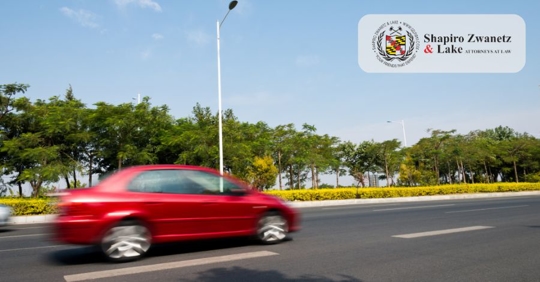In Maryland, a reckless driving charge can be a lot more than a simple traffic ticket. It’s a criminal misdemeanor with serious consequences that can follow you long after your day in court. While many people think of reckless driving as a matter of just paying a fine, the reality is far more complex, especially with recent changes to the law. If you’re a Maryland resident facing a reckless driving charge, it's crucial to understand what's at stake and how to build a strong defense.
The Reality of Reckless Driving Charges in Maryland
Under Maryland law, reckless driving is defined as operating a vehicle “in wanton or willful disregard for the safety of persons or property.” This broad definition gives law enforcement the discretion to charge you for a variety of behaviors—from tailgating and aggressive lane changes to excessive speeding. A conviction can lead to a fine of up to $1,000, up to 60 days in jail, and six points on your driving record. Accumulating eight points within two years can result in a license suspension, jeopardizing your ability to get to work or take care of your family.
This is a criminal matter, not a civil one. Unlike a speeding ticket, where you can simply pay and move on, a reckless driving charge requires a court appearance and can result in a permanent criminal record. This can impact your employment, insurance rates, and overall reputation.
The Sergeant Patrick Kepp Act: A Game-Changer
Maryland has recently enacted new legislation that significantly raises the stakes for drivers. The Sergeant Patrick Kepp Act, which went into effect on October 1, 2025, makes it a criminal offense to drive 30 miles per hour or more over the posted speed limit.
Before this law, such excessive speeding was often handled as a payable citation. Now, it's a criminal charge. The Act was passed in response to a tragic incident that left a Montgomery County police officer with life-altering injuries. It's a clear signal that the state is cracking down on dangerous driving behaviors. This new law means that what was once a fine could now lead to jail time and a criminal record, even for a first-time offense.
Building Your Defense
Facing a reckless driving charge, particularly under the new laws, can be overwhelming. Simply pleading guilty or paying the fine without a fight is often the worst decision you can make. An experienced attorney can evaluate the details of your case and help you navigate the legal system. Here are some key defense strategies:
- Challenging the Evidence: An attorney can question the accuracy of the police officer's report, including their speed-measuring device, or the subjective nature of the “wanton or willful” determination.
- Negotiating a Lesser Charge: In many cases, it may be possible to negotiate with the prosecutor to have the charge reduced to negligent driving. While still a misdemeanor, negligent driving carries fewer points and a lower fine.
- Requesting a Probation Before Judgment (PBJ): For some first-time offenders, a PBJ is an option that allows you to avoid a guilty conviction and the associated points on your license.
- Presenting Mitigating Factors: A skilled attorney can present a compelling argument to the judge, highlighting any mitigating circumstances that may have contributed to the charge.
Don’t Go It Alone
A reckless driving charge in Maryland isn’t a small problem—it's a criminal charge with serious, long-term consequences. The recent changes brought by the Sergeant Patrick Kepp Act have only made the situation more urgent. Don't risk your license, your record, or your freedom by handling this on your own.
If you are facing reckless driving charges in Maryland, you need experienced legal counsel from Shapiro Zwanetz & Lake. We are here to protect your rights and your future.
Contact us today at (410) 927-5137 for a confidential consultation.

